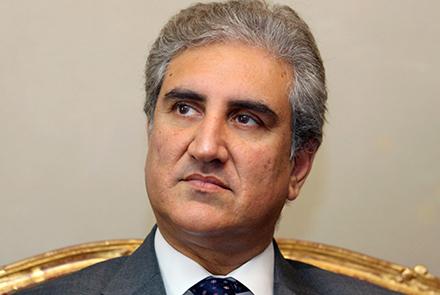The Pakistan Tehreek-e-Insaf (PTI) government on Sunday reacted cautiously to the US cancellation of $300 million in aid to Pakistan, insisting the money is not assistance but reimbursements for the country’s expenses in the fight against terrorism, according to Pakistan’s Tribune.
The report stated that it was decided not to react strongly at this stage and instead wait for the visit of US Secretary of State Mike Pompeo, who is due in Islamabad on Wednesday.
Pakistan’s Foreign Minister Shah Mehmood Qureshi politely reminded the US that the cancelled $300 million was not aid but the expenses Pakistan had incurred in the fight against terrorism.
“This is not aid. This is our money that we have spent in the fight against terrorism,” the foreign minister insisted but stopped short of denouncing the US move.
Qureshi however said Pakistan would listen to the US’s concerns during Pompeo’s visit to Islamabad and would in turn convey its own concerns, the Tribune reported.
He also said the PTI government wanted a good relationship with the US based on mutual respect and benefit.
It comes a day after, the US military said it has made a final decision to cancel $300 million in aid to Pakistan that had been suspended over Islamabad’s perceived failure to take decisive action against militants.
The Coalition Support Funds were part of a broader suspension in aid to Pakistan announced by President Donald Trump at the start of the year, when he accused Pakistan of rewarding past assistance with “nothing but lies & deceit.”
The Trump administration says Islamabad is granting safe haven to insurgents who are waging a 17-year-old war in neighboring Afghanistan, a charge Pakistan denies.
But US officials had held out the possibility that Pakistan could win back that support if it changed its behavior.
US Defense Secretary Jim Mattis, in particular, had an opportunity to authorize $300 million in CSF funds through this summer - if he saw concrete Pakistani actions to go after insurgents. Mattis chose not to, a US official told Reuters.
“Due to a lack of Pakistani decisive actions in support of the South Asia Strategy the remaining $300 (million) was reprogrammed,” Pentagon spokesman Lieutenant Colonel Kone Faulkner said.
Faulkner said the Pentagon aimed to spend the $300 million on “other urgent priorities” if approved by Congress. He said another $500 million in CSF was stripped by Congress from Pakistan earlier this year, to bring the total withheld to $800 million.
Reuters reported the Pentagon’s decision showed that the United States, which has sought to change Pakistani behavior, is still increasing pressure on Pakistan’s security apparatus.
It also underscored that Islamabad has yet to deliver the kind of change sought by Washington.
“It is a calibrated, incremental ratcheting up of pressure on Pakistan,” said Sameer Lalwani, co-director of the South Asia program at the Stimson Center think tank in Washington.
Reuters reported in August that the Trump administration had quietly started cutting scores of Pakistani officers from coveted training and educational programs that have been a hallmark of bilateral military relations for more than a decade.
The Pentagon made similar determinations on CSF in the past but this year’s move could get more attention from Islamabad, and its new prime minister, Imran Khan, at a time when its economy is struggling.
Khan, who once suggested he might order the shooting down of US drones if they entered Pakistani airspace, has opposed the United States’ open-ended presence in Afghanistan. In his victory speech, he said he wanted “mutually beneficial” relations with Washington.
A Pakistani official, speaking on condition of anonymity, said he was unaware of a formal notification of the US decision on assistance but said one was expected by the end of September.
Pakistan has received more than $33 billion in US assistance since 2002, including more than $14 billion in CSF, a US Defense Department program to reimburse allies that have incurred costs in supporting counter-insurgency operations.

